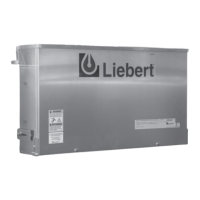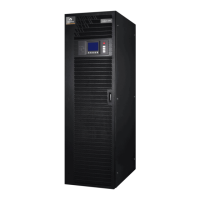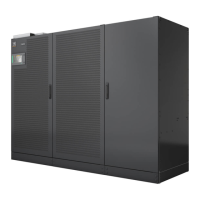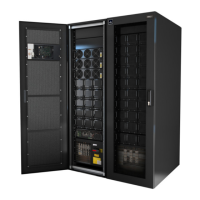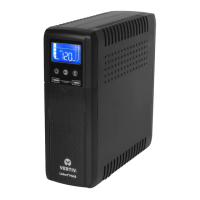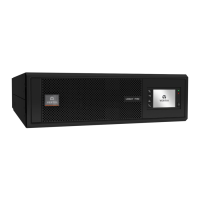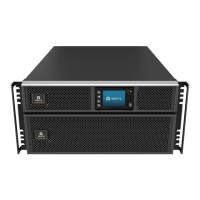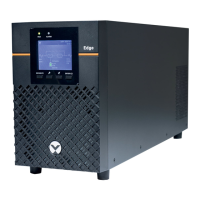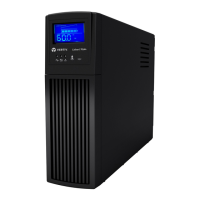From this operating mode, the UPS automatically returns to VFI operation within the backup time after line power returns. If
the duration of the power failure is longer than battery capacity under current load, the UPS provides the relative
information via its interfaces. Computers can be automatically powered down with additional software (optional).
Maintenance Bypass
In this operating mode, the connected loads are supplied directly with line power.
Maintenance bypass is used to supply connected loads during maintenance work on the UPS.
WARNING! To avoid overheating inside the UPS, do not operate the unit for extended periods with the
rectifier running, the inverter switched Off and the bypass switch open.
2.3 Special Features
2.3.1 Smart Safe and Reliable Operation
• Three operating modes (see Modes of Operation on the previous page) that can be selected to suit the type of
load being supplied, the required level of efficiency, and the quality of line power.
• Important features of the UPS, such as vector control and high flexibility, are supported by the DSP board.
• The UPS adopts the smart power capacity: maximum available output power limit is dynamically set based on
at least one temperature experienced by the uninterruptible power supply system. In one aspect, the
temperature is ambient temperature of the area in which the uninterruptible power supply system is located.
This temperature is used as a control parameter to set the maximum available output power limit. Dynamically
set means that the temperature is being used as the control parameter. The maximum available output power
limit is changed accordingly when the control parameter changes.
• Static bypass switch increases the reliability of electrical supply.
2.3.2 Easy Installation and Operation
• Parameterization using bundled PC software.
• Operator is not required during normal operation.
• Simple touch screen provides clear indication of status, load and battery quality. The concept behind the
display and the way the display operates are easy to understand.
• Event memory for fault analysis.
• Fault display and audible signal.
2.3.3 Battery Management
• Temperature-dependent charging
2.3.4 Environment, EMC
• The EMC limits values to comply with the FCC regulations
• Energy savings due to high efficiency
• Low noise level
2 Introduction
9
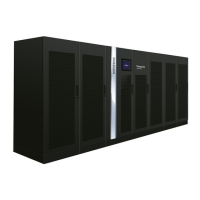
